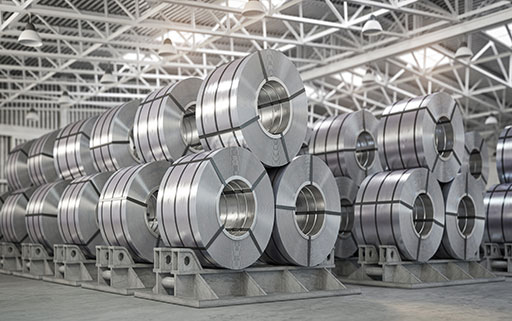Tata Steel is India’s largest steelmaker that has a presence across the entire value chain of steel manufacturing. The century-old company mines and processes iron ore and coal and produces and markets finished products.Tata Steel has the largest presence in India. Besides, it is also present in the United Kingdom, the Netherlands, Canada and Thailand. The company is planning to raise its capacity in domestic plans.
It is also adding capacity by merging many subsidiaries and other similar Tata Group companies.In September 2022, the steel giant said its board of directors approved the proposal to merge six subsidiaries into and with Tata Steel. They include Tata Steel Long Products Limited (74.91% stake held by Tata Steel), The Tinplate Company of India Limited (74.96%), Tata Metaliks Limited (60.03%), The Indian Steel & Wire Products Limited (95.01%), Tata Steel Mining Limited and S & T Mining Company Limited (both wholly owned subsidiaries).
The board approved the merger of TRF with Tata Steel.Many analysts, including the management of Tata Steel, believe that the proposed merger will enhance management efficiency, drive sharper strategic focus, and improve agility across businesses.That said, in the one-year time horizon, analysts do not have a positive view of Tata Steel share price. Those at ICICIdirect have a target price of Rs. 98 on the stock which means a potential downside of about 20% from prevailing prices in January 2023 end.
Following are some key factors that may impact the Tata Steel share price going ahead:
Margin Conundrum
Tata Steel has two major steel production facilities – one in India and the second in Europe. Going ahead, the expectation is that domestic margins will improve while margins at Tata Steel Europe are likely to compress.This is happening due to higher raw material prices such as coal and a decline in the price of finished products, especially in Europe.
Earnings Before Interest, Taxes, Depreciation, and Amortisation per tonne at $125 during Q2FY23 was the lowest since Q1FY22 owing to higher-priced raw material inventory compounding the price decline of $50 per tonne quarter on quarter. The company admitted that its UK operation was burning cash at the rate of GBP 100 million in FY23.
Debt Overhang
As the situation has become difficult, analysts are also trimming their expectations on Tata Steel reducing its debt. This is especially difficult given the company has a capital expenditure plan laid out. Analysts at ICICIdirect said they do not see further scope for immediate debt reduction given lower spreads and capex commitments.
Management Take
In media interviews and earning calls, the management has also expressed that the situation was tough in recent quarters, but it now sees some signs of improvement. It remains to be seen how much of that hope realise into reality.






